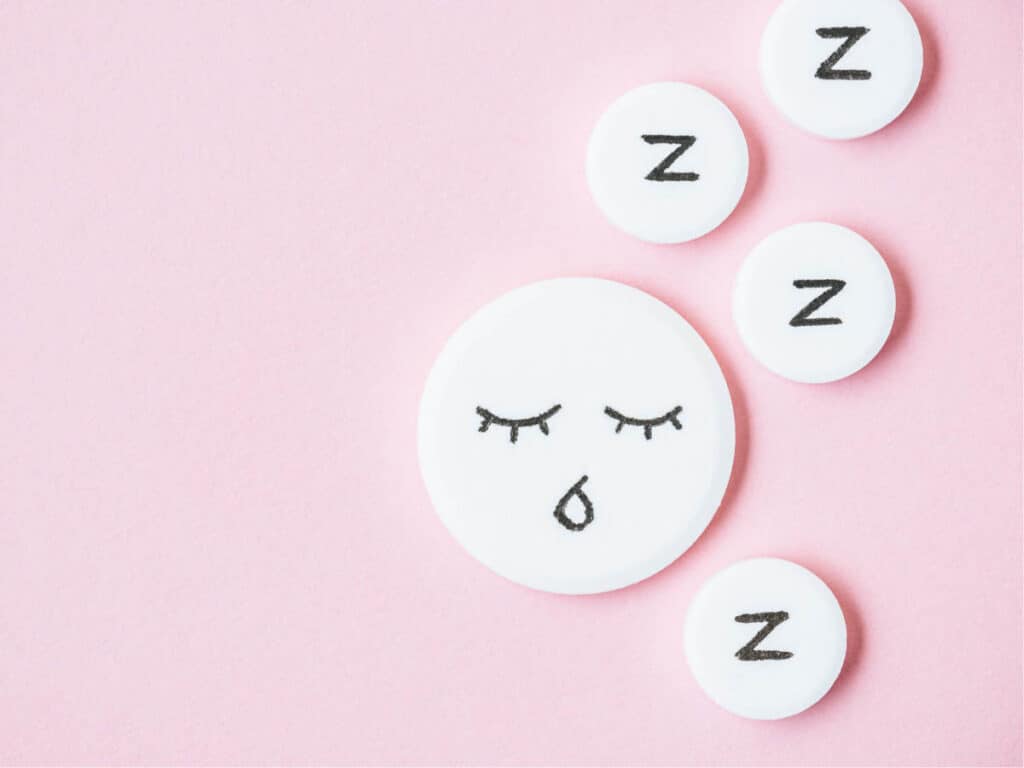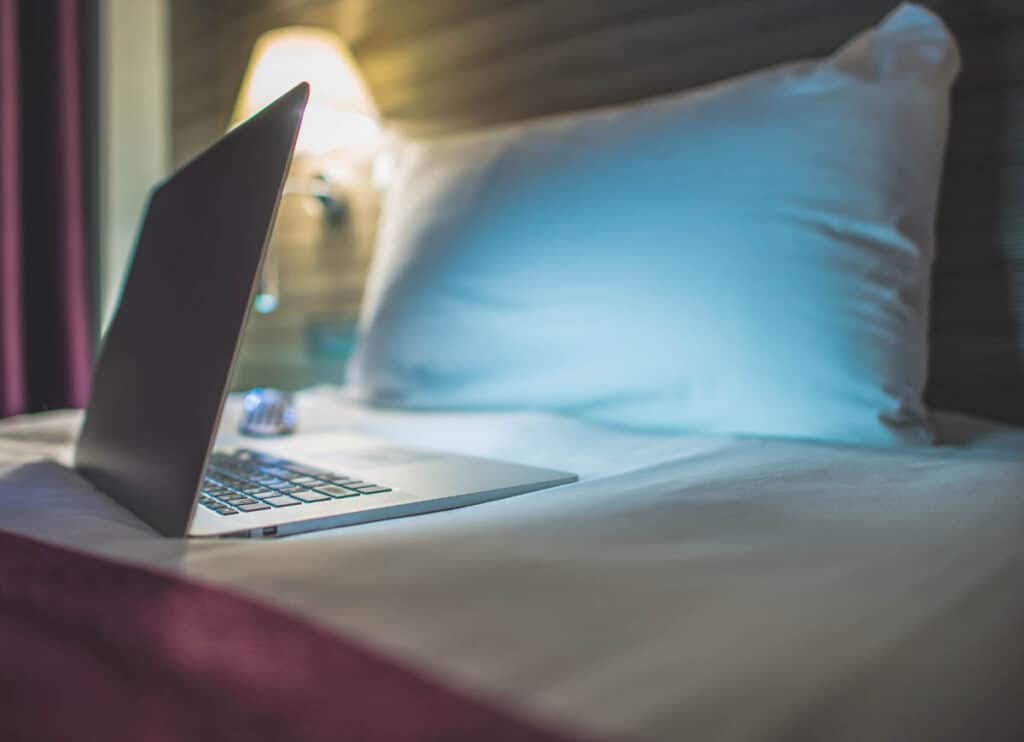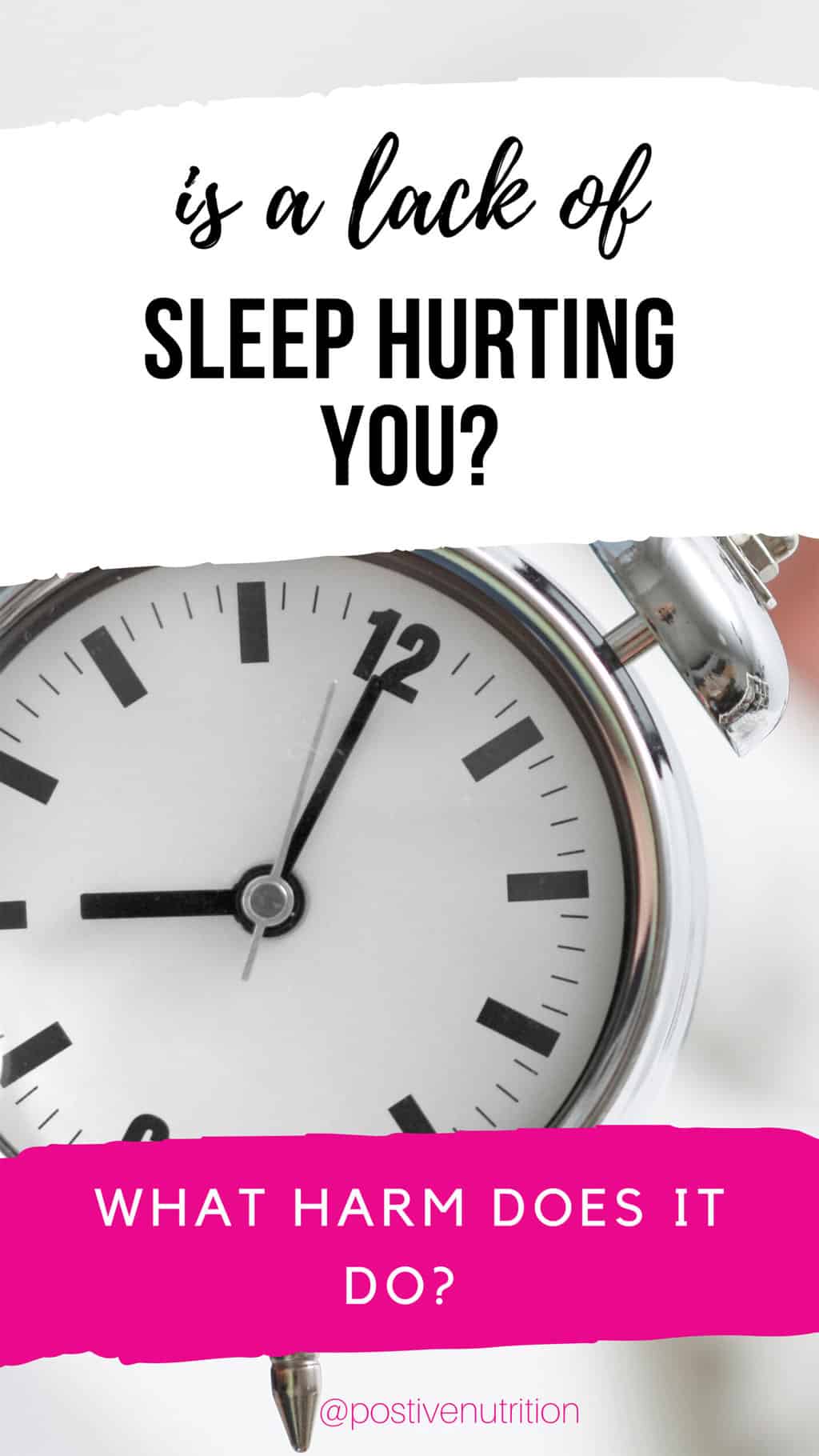Getting a good night’s sleep can be difficult when you’re struggling with insomnia. What should you do if you lie awake and can’t get to sleep? Is a lack of sleep hurting your health? Take a look below, insomnia may be more than just an annoyance. Could one of these suggestions help you?

Insomnia and sleep deprivation can be physically and mentally debilitating. Experiencing a sleep disorder can result in feelings of anxiety and dread when bedtime nears. But how much sleep do we really need? What if we don’t get enough sleep?
How Much Sleep Is Enough?
Getting the right amount of sleep for our body is important to our well-being. If you look at various government recommendations you will see Australia suggests 8 hours sleep per night. America states that between 7-9 hours is healthy. At the end of the day, everyone is a bio-individual. We are all different and we have varying needs for sleep needs at different times in our life. It is also interesting to note that research suggests that women need more sleep than men.
As important as the number of hours we sleep is the quality of sleep. Our body needs to transition regularly between the four sleep stages throughout the night for our bodies to truly recharge and recover. These sleep stages make up a sleep cycle. Each sleep cycle will last between 60-90 minutes. We will mostly slip in and out of N2, N3, and N4 throughout the night. Each stage of sleep allows a different level of rest and repair to occur within the body.

What is an optimum Sleep-Wake Cycle?
An Average sleep cycle last 90 -110 minutes. Depending on how long the individual sleeps they will experience 4- 6 sleep cycles every night.
Types of Sleep
- N1 – Drifting off to sleep – 1 to 7 minutes
- N2 – Light Sleep – 10 to 25 minutes
- N3 – Deep Sleep – 20 to 40 minutes
- N4 – REM Vivid Dreaming Sleep – 10 to 60 minutes
Usually, N1 is only experienced at the start of the night, but if you wake through the night or get up for any reason you may experience a second brief N1 cycle.
The N2 stage starts off shorter at the beginning of the night but lengthens as the night progresses. During the first part of the night, we spend long periods in N3, this is when we experience delta brain waves. N3 is our deep sleep cycle.
In the second half of the night, we start to have longer periods of REM sleep, spaced between N2 and N3 sleep.
Each sleep cycle of 90 -110 minutes will feature N2, N3, and N4 stages of varying times.
What if I’m not Asleep after 15 minutes?
If you’re not asleep after 15 minutes in bed and you are not feeling like sleep is on the way it can be better to get out of bed rather than lie awake for hours. This may sound counterintuitive, but hear me out. You are only going to get up to reset.
Don’t turn on lots of lights, just a lamp if needed. No television or devices. You should aim to try some of the suggestions on the list of “Sleep Aids or Remedies” and then settle back down to bed.
Why is Sleep Important?
Getting good quality sleep is not a luxury it’s a necessity. Not getting enough sleep each night is a serious health risk. Sleeping well is absolutely essential for good health. Why? Because until you sleep the body can’t undertake some of its most important tasks. These are functions that are crucial for your health, and they need to occur every 24 hour period.
We need good quality sleep just as much as we need good hydration and healthy, nutrient-rich food.
Here are some of the activities that occur while we sleep:
- The body repairs tissue.
- Energy stores are replenished.
- Hormones and other molecules are released for functions such as growth,
- Nerve cells communicate and are reorganised to facilitate healthy brain function.
- During Stage 4 REM sleep, the brain transfers the events of the day from short-term memories to the temporal lobe for long-term memory making. This is completed via a “playback system.”
- The sleeping brain is also busy at work ridding itself of toxic metabolites. Over the course of the day, the build-up of a protein called beta-amyloid occurs. The glymphatic system washes the built-up metabolites from the brain via waves of fluid flowing through the spinal cord. The glymphatic system operates at its optimum in Stage 3 (Non-REM) Delta, Slow Wave, Deep Sleep. A build-up of beta-amyloid is associated with Alzheimer’s and Dementia.
Sleep Deprivation Effects – Disease & Health Issues
I think we have a tendency to “soldier on” when it comes to pushing through fatigue. We may also have a tendency to burn the candle at both ends when it suits us. For whatever reason we may notice ourselves becoming more tired but we push through the fatigue and continue the many chores and stressors of life. At some point, you have to ask yourself what toll is this having on your health.
Good sleep is essential for maintaining overall health and wellbeing.
We have already explored the physiological functions of sleep. Now let’s look at the repercussions of accruing a sleep deficit or having poor quality sleep.
- poor mental health
- depression, higher levels of cortisol and quicker stress responses, and anxiety.
- difficulty with weight stabilisation. While we sleep the body secretes hormones such as leptin that control appetite, and others that assist metabolism, and glucose processing. Having too little sleep disrupts the production of these and other hormones.
- Having too little sleep can trigger the release of ghrelin, a biochemical that stimulates appetite. This can result in increased hunger the following day and food cravings.
- impaired control of blood glucose, higher incidence of metabolic syndrome, and diabetes.
- high blood pressure
- heart disease
- activates the molecular pathways that drive biological aging.
- drives inflammation that leads to disease.
These are serious conditions that are precursors to life-threatening diseases. Happily, armed with this knowledge you can be on the road to a healthy future because it is all preventable by getting some serious zzz’s.
Healthy Sleep Routines
Engaging in healthy sleep practices can help set up a successful sleep-wake cycle. Your actions throughout the day, such as experiencing natural sunlight, or reducing caffeine can have an effect on the release of various hormones that may help or hinder your quest for sleep in the evening.
I have put together a list of things to be mindful of throughout the day. These suggestions can assist the body to fall into a pattern that works with the body’s natural circadian rhythm and is, therefore, more conducive to sleep.
Daily Routine
- Avoid caffeinated drinks after lunch.
- Avoid naps or taking a rest during the day.
- Go outside during the day and get some natural daytime sunlight each day.
- After work hours don’t open emails or attend to any business messages. Try and reduce all forms of stress.
- Try to get outside for some light exercise as the sun is going down. Just taking a walk can help release endorphins which will assist in negating the stresses of the day.
- Also, being outside as the sun is setting reinforces to your body that it needs to start reducing cortisol and increasing the production of melatonin.
Evening Routine
- Avoid a large meal right before bed.
- Refrain from drinking alcohol or taking recreational drugs, particularly before bed. (More on this later).
- Have a regular bedtime.
- Remove anything from the bedroom that displays a light throughout the night. Examples; phone charging lights, digital clocks, or electronic equipment with indicator lights.
- Draw curtains or pull down blinds to darken the room.
- Have a regular time to turn off tech devices, preferably 30-45 minutes before going to bed.
- Turn lights off an hour before bed and watch television or read a book by lamp light or none.
- Only get into bed when you are ready to sleep. Don’t use the bed for reading or TV.
- Engage in a short 2-3 minute breathing activity. Even if it’s just slowly inhaling for 10 counts and then exhaling for the count of 10. This routine gives you something relaxing to focus on when you first get into bed.

Barriers to Sleep
What causes sleep disorders? So many conditions can result in difficulty sleeping or staying asleep. Some of the most common are;
- Restless Leg Syndrome – See suggestions below– Nutritional Health Protocols can assist
- Sleep Apnea – See below Medical professional
- Heartburn or reflux issues – Nutrition Gut Health Protocols may offer relief
- Disturbed circadian rhythms due to shift work or children – Health & Wellness Coaching can assist
- Anxiety Disorders & PTSD – See a Mental Health Professional
- High levels of stress – Health and Wellness Coaching can assist
Rather than try to treat the symptom (insomnia) it’s important to take a good look at what may be causing the issue. What is the root cause of the problem? By taking a position of curiosity as you look down this list you may find a condition, or symptom that resonates with you.
This can be a great starting point for freeing yourself from insomnia. If there is a chance your insomnia is stemming from a medical issue you should make an appointment to have the condition fully evaluated.
Could your Insomnia Be Sleep Apnea?
If there is any chance your insomnia could be sleep apnea it is best to be seen by a medical professional. Signs that should not be ignored;
- Waking through the night gasping for a breath
- Waking with a dry mouth
- Being tired throughout the day despite sleeping
- Morning headaches
- Waking multiple times through the night
Once treatment has commenced the doctor is likely to have suggested weight loss. If you would like assistance please consider making an appointment and discussing a weight loss plan with me.
Restless Leg Syndrome
If you have ever experienced restless legs you will need no explanation of what it feels like. If you haven’t had this condition, imagine you desperately need to move your legs because of some strange creepy feeling inside them. It’s impossible to describe and it is almost impossible to go to sleep when you are suffering from restless legs.
Diet Review – The solutions below may be helpful when an attack of restless legs occurs. The best solution is to solve the problem long-term. Make an appointment for a Nutritional Health Evaluation. This will help us get to the root cause of the problem by investigating a typical weekly meal plan and evaluating if there are any missing nutrients or inflammatory foods that may be causing issues. If you regularly have this problem one common nutrient deficiency is magnesium.
Magnesium – taking a magnesium supplement can help RLS and muscle cramps if you are low in this vitamin. Magnesium also increases circulating melatonin in the body so it may also help make you drowsy.
Restless leg Remedies
Although “in the moment,” there is no immediate cure for restless legs. there are some tips to help sufferers. The worst thing you can do is lie in bed and hope it goes away.
Water – Dehydration has been shown to be a contributing factor in RLS, so have a full glass of water.
Hot Shower – Take a hot shower and massage your legs gently in a relaxed manner.
Banana – Banana contains potassium, magnesium, and phosphorous, three electrolytes. There is no concrete evidence but antidotally bananas have been said to help with RLS. This is thought to be due to having balanced electrolytes in the body that control nerve impulses.
Is Heartburn Causing Sleep Issues?
If you are a heartburn sufferer, getting to sleep, or staying asleep through the night while experiencing acid reflux can be difficult. Some people may even find they wake up through the night choking on acid reflux.
If you are one of these people there are a few things you can try for individual episodes but the best solution is to find the cause and to treat the cause of the heartburn.
Gut dysbiosis can be a cause of acid reflux. Exploring gut health and improving the microbiome can be an important step in eliminating this condition and many others that stem from gut health issues.
Diet Review – The best approach is to undergo a diet review. Make an appointment for a Nutritional Health Evaluation. This will help us get to the underlying cause of your GERD gastroesophageal reflux disease.
Heartburn Remedies
Sleeping on your left side – A study has found a decrease in heartburn effects where subjects slept on their left side. They still experienced heartburn but the esophagus cleared more quickly on the left side, thus shortening the duration.
Sleep with an Elevated Head or Torso – Use a wedge under the mattress or an additional pillow to raise the upper body. This can help by lessening the work the lower esophageal sphincter needs to do.
Losing weight – Even losing just a bit of weight can have a positive effect on GERD. Consider making an appointment and discussing a weight loss plan with me.
Avoid Large Meals – Keep meals lighter before bed so your body has time to digest them before it’s time for sleep.
Choose Loose Clothing – Waistbands can put additional pressure on the lower esophageal sphincter or stomach. Try to wear loose-fitting clothes.
Avoid Tigger Foods – Food that triggers GERD should be avoided where possible. These include cola, coffee, high-fat meals, spicy foods, citrus, or dairy in some people.
Disturbed Circadian Rhythms
What can cause your body clock to get out of balance? The common causes are shift work, a new baby, or jet lag. In these examples, the body has been put in a position where the hormonal body queues or the external environmental queues have been ignored and sleep has not occurred as expected. This can cause a disruption to the circadian rhythm.
Some people find that once they have disrupted their body clock they struggle to get the sleep they feel their body needs. The result is always feeling tired.
Health & Wellness Review – The optimum solution is to book an appointment for a Sleep Hygiene and Circadian Rhythm Reset Plan. This will allow a plan to be tailored to your circumstances, taking into account obstacles. If necessary supplementation will also be investigated.
Resetting Circadian Rhythms
Routine – As mentioned in the section “Healthy Sleep Routines” developing healthy and consistent habits is the key to restoring a regular sleep-wake cycle. Take a look at the suggestions above for day and evening routines.
Anxiety Disorders & PTSD Sleep Disorders
If a mental health issue is affecting your sleep I would strongly suggest that you should visit a health professional. In Australia, this would involve making an appointment with your GP for a referral to a Psychologist or Psychiatrist.
The GP can request a 10-session Medicare-funded Psychology plan which will help with the cost of treatment.
Do High-Stress Levels Keep You awake?
We all know that feeling, lying in bed and not being able to switch off! That “wired” feeling. Perhaps you are someone that replays the day and can’t get past issues that have arisen. Maybe it’s money worries, family issues, or relationship problems. There are so many things that can take over your mind and stop you from getting some precious sleep.
As we have already discussed, without sleep you are:
- more likely to get sick and have a depressed immunity.
- more likely to become depressed.
- more likely to develop chronic illnesses
- less able to cope with stress
- less able to make decisions
Health & Wellness Review – Quality sleep is as important as eating a healthy diet. Health coaching sessions can uncover the cause of your nighttime rumination, freeing your mind to release and get that quality sleep you have been craving.
Book an appointment for a free chat and see if this is something that could start you on the pathway to a healthy beginning. In the meantime, Ashwagandha is a powerful herb that helps relieve stress. Whilst it’s not a substitute for getting to the bottom of the problem, it will help you get some much-needed rest.
Sleep Aids & Remedies
There are so many sleep aids people use to get off to sleep. Some are natural remedies and others are pharmaceutical sleep medications. Unfortunately, some sleep remedies may end up doing more damage to the sleep cycle than anticipated. For the purposes of determining a natural versus pharmaceutical aid, I have classified the substances based on the level of control under The Therapeutic Goods Act 1989.

Natural Sleep Aids
- Warm Milk – it may sound like an old wives tale, but if you have been lying in bed awake it may be time to get up and make yourself a warm milk. Milk was thought to be sleep-inducing because of the snoozy, sleep enhancer tryptophan. Science has now discovered that in addition to tryptophan, there are milk peptides that go by the name casein tryptic hydrolysate (CTH). These not only enhance sleep but also relieve stress!
- Sleep Meditation – this is a practice that helps you slow your breathing and your mind, and relax your body, allowing it to be in the optimum state to drift off to sleep. Meditation can help reduce cortisol levels. Cortisol is the hormone keeping you awake. Like anything though, meditation requires practice. Aiming to just become more relaxed by the end of the meditation is more helpful than expecting sleep at the end of the 15-minute practice. I would recommend listening to a few sleep meditations. Find one that is 10 -15 minutes long that appeals to you and have it ready to go for the evening. It is best with headphones that block out any external noise.
- Non-sleep deep rest, or yoga nidra, is a state where your body is in a deep relaxed state, but your mind is still awake. This is an actual practice like meditation where the subject is in a dreamlike state. The idea behind this is the brain gets a rest, so the participant feels reinvigorated. However, some people use this practice to prepare for sleep and find it a good way to transition to sleep. With this in mind, there are plenty of guided Nidra practices on YouTube, it may be useful to try one the next time you can’t sleep.
Herbal Sleep Aids
- Herbal Tea – Herbal teas such as Valerian or camomile tea can help. If you have already tried to sleep for 15 minutes it can help to get up and make a cup of tea. Just the act of getting out of bed and making and drinking the tea can be enough to reset yourself. Plus both Valerian and Camomile have relaxing qualities.
- Valerian Root Tea or Valerian Capsules 530mg per day. This herb has been known for its relaxing reputation. It helps with sleep, anxiety, and depression. When taking Valerian tea for sleep it’s best taken one hour before bed. The tea can be consumed 2-3 times in the afternoon in the lead-up to the evening if required. Capsules were found to be effective when taken 30-60 minutes before bedtime.
- Lavender – The relaxing aroma of lavender flowers has been shown in numerous studies to enhance sleepiness. The studies show increased sleep duration and quality in participants who smell lavender shortly before going to bed. A few drops of natural essential oil in the bath, or massaging some lavender essential oil mixed with a carrier oil into your arms or legs before bed may be a relaxing exercise worth trying. Making this a part of your sleep routine can also help “trigger” your body into preparing for sleep. When using oils for therapeutic purposes always use natural essential oils, not chemicals made to smell like the herb.

Sleep Supplements
- Magnesium – increases the levels of GABA, a brain-calming chemical. It is quite common to have a deficiency or low levels of magnesium. Studies have shown that low levels of magnesium in the blood have a detrimental effect on sleep quality and quantity. Studies have even found that supplementing with magnesium can help subjects fall asleep faster. Magnesium supports sleep and muscle relaxation while maintaining a healthy sleep cycle.
- Ashwagandha – Ashwagandha is one of the most important herbs in Ayurveda medicine. It has been used for thousands of years to relieve stress, and aid sleep. The plant is a small shrub, extracts of the root or leaves are used for medicinal purposes. It is classified as an adaptogen for its ability to relieve stress. It appears to regulate cortisol and has effects on the HPA axis (hypothalamic-pituitary-adrenal) which regulates stress response. In a study not only did participants reduce stress and cortisol levels but they also had significant sleep improvements compared to the placebo group.
- GABA for Sleep – Gamma Amino Butyric Acid, is a neurotransmitter that blocks certain signals in the nervous system providing a relaxing effect on the body and brain. The calming effect reduces anxiety which has been shown in studies to aid in falling asleep. Purchasing Australian-made GABA is a good idea as it is regulated by the Pharmacy Board of Australia so you can be sure of the dosage and quality. Other countries are unregulated.

Don’t forget to pin me for later!
Sleep Aids – May be Restricted
- Melatonin – is a naturally occurring hormone that increases toward the end of the day in response to the sun going down and nighttime falling. This is a part of the circadian rhythm or sleep cycle. Darkness triggers the release of melatonin and a reduction in the amount of cortisol produced. Have you ever gone camping and noticed that you’re ready for bed earlier each night? Do you start to get in sync with the rhythm of the day and night cycle? This is because unlike in a house, there aren’t any house lights and televisions to confuse the hormone signals. In Australia Melatonin is restricted and a prescription is necessary. The advantage melatonin has when compared with sleeping tablets is that it isn’t habit-forming and it won’t cause drowsiness or a hangover feeling the following day. Caution should still be exercised when using melatonin as taking a synthetic version of a hormone the body produces may cause problems with natural melatonin production. As with anything, it’s best to find the root cause. Studies in countries that allow melatonin as a sleep aid have found occasional short-term use to be beneficial.
- Marijuana – The analgesic properties in this drug can provide some relief for those with chronic pain, and calm those with anxiety allowing them to sleep. The THC in the herb is responsible for sleepiness, so if the strain you have has more CBD it is likely to make you more excitable and have the reverse effect. The drug is not without issues. As with alcohol, the slumber it induces doesn’t replicate a natural sleep cycle. This results in the body not having the opportunity to attend to all the normal REM sleep functions such as healthy cognitive processing and function, inflammation, and immunity. There is also the possibility that glutamine may be produced to reverse the sedative effects of the drug causing sudden wakefulness through the night. Studies to date suggest that if you are over 25, using marijuana as a short-term use sleeping aid poses less harm than alcohol. If you are under 25 it has significant negative effects on grey matter. This information is only helpful if you live in a state where the herb is legal.

Alcohol & Sleep
Alcohol – It is quite common for people who are having difficulty sleeping to have a little nightcap or two. Although this may seem to help initially as the depressant qualities of the alcohol kick in and sleep comes quickly. The sleep problems caused by this are twofold. Whilst sleep comes quickly the quality is poor. The body doesn’t get the chance to cycle through the four stages of sleep during the night.
REM sleep is absent when sleep is induced by alcohol use, and N3 Deep Sleep is the predominant type of sleep. This doesn’t allow the body to do any of the functions it can only do in REM sleep.
Then comes the worst aspect of alcohol-induced sleep. The rebound wakefulness can occur as the body attempts to recover from being anesthetized. Alcohol, being a depressant, sedates the body. It inhibits many natural processes. One of these is the production of glutamine which is a stimulant. Once you fall asleep you naturally stop drinking and glutamine tries to restore homeostasis to the body. It tries to reverse the anesthetic effect of the alcohol. Your body overproduces the stimulant glutamine. This is what causes you to wake at 2-3.00 am in the morning alert and unable to sleep. Until both the glutamine and alcohol levels reduce to normal levels it will be difficult to get normal sleep.
pharmaceutical Sleep Aids
In Australia, benzodiazepines are the main type of prescription issued for sleeping complaints. Some of the names these go by are;
- Temazepam
- Nitrazepam
- Diazepam
- Alprazolam
- Oxazepam
- Valium
These drugs affect the central nervous system and provide a depressant effect. They are considered minor tranquilisers. The use of Benzodiazepam is monitored by a medical health professional as there is a high risk of dependence. Getting access to this medication will be a short-term fix whilst you are dealing with the problem that is causing insomnia.
Some of the possible side effects of long-term Benzodiazepam use include:
- increased tolerance
- headaches
- memory loss, difficulty thinking
- addiction
- weight gain
- withdrawal symptom
As with other medications, the quality of sleep when taking Benzodiazepam is inferior to natural sleep as it interferes with sleep cycles. In addition to this, it can also cause a “hangover” effect in the morning making it difficult to think clearly or attend to necessary tasks.
There is so much that can be done to help insomnia. The key is to get to the root cause of the issue and solve that problem. If there is anything I can do by way of diet or health and wellness coaching be sure to book an appointment so we can get you back onto a path of good health.
I hope this article helps you in getting a good night’s sleep in the future.

Link Disclosure
From time to time I recommend products or ingredients. These are always items I use and love! When I share a link to a product you can rest assured that I have tested the item and genuinely love it! If you follow my link and purchase the item in some cases I will receive a commission for the referral.
Whilst the commission may only be $1 or so, I value your support, and I take your trust very seriously.
By clicking on my link, or selecting my name “Julie Carlyle” as the referer you reward me with a small commission that helps support in providing the free information in this website.
Your support means so much!
References
https://druginfo.sl.nsw.gov.au/drugs/z-drugs/benzodiazepines








Ashwanganda is something I’ve heard mentioned but had no clue about so it was nice to read about it here. This whole article was very informative. Thanks for sharing!
Hi Abby,
Thank you for your lovely comment. Ashwagandha also has sexual benefits for females too as an added bonus 🙂
Julie
Really informative article about sleep. I recognized myself here on multiple occasions. I struggle with N1 because I wake up a couple of times during the night and I find it hard to fall asleep easily again.
Hi Pedja
When I was writing this article my brain was so in tune to my sleep cycles that I was waking every 60-90 minutes. I think my body just wanted to show me the 4 stages each cycle!! It wasn’t fun!
Thankfully I’m back to getting normal sleep again.
Julie
Amazing article…I enjoyed reading it. Thanks for sharing!
Thanks Tina
I’m pleased you enjoyed the article.
J